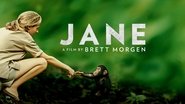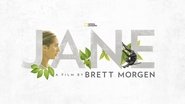westsideschl
Positives:
Seeing & hearing about her early life s a teen and younger was interesting especially as it related to her naturalist motivations. Seeing how she observed and interacted with the African landscape also interesting. A taste of her observational methodologies that she felt comfortable developing including the interactions with the chimps interesting as well although some criticize as not scientifically rigorous.
Negatives:
The major negative, and which Nat Geo should be ashamed, is the lack of subtitling to help some viewers as well as to compensate for at times poor audio. Yes, Nat Geo, dialogue is important. Minor, almost neutral, is the Glass background music which may be excessive to some viewers, and a lot of footage for ambience such as caterpillars crawling on a branch. Would have liked a bit more on her later life, and what research is currently finding at her chimp center.
pmpmn9
It's well worth watching and I highly recommend it. I've known about Jane Goodall's work for many years. What I didn't realize all this time was that Jane wasn't a researcher or even a student when she went to live in Gombe in 1957 to study the chimpanzees, she was a 26-year-old secretary with a love of animals. That's all. She is a perfect example of how the seemingly most unqualified person can actually be the best one for a job. It took five months for her to even get close to the chimpanzees. Someone else might not have or given up. She compiled tons of data. Someone else might not have been as thorough. Tragedies happened and her personal life threatened her commitment, but she never gave up, always went back, and this ground-breaking research is still in progress over 60 years later. That's dedication. Well done, Dr. Goodall!
dokrauss
Someone found a box of unused film clips that Jane Goodall's husband, cinematographer Hugo van Lawick, had left in a box and decided to piece them together into another Jane Goodall documentary. You'll see why van Lawick left them in a box because they are posed shots of Jane looking through binoculars, climbing trees, washing her hair, looking through binoculars, walking through the jungle, looking through binoculars, playing with a chimp, looking through binoculars, and looking through binoculars. Only reason to watch this is an attempt to induce an aneurysm.
Joe Stemme
JANE is a simply titled documentary about the life and career of naturalist Jane Goodall. Director Brett Morgen does a very fine job of sifting through hundreds of hours of footage to illustrate his movie. Interviews (both original and period) are layered over the clips to bring her story to life.The plain title is appropriate for Goodall wasn't a scientist by training, but, a secretary who got the attention of renowned paleontologist Louis Leakey (curiously, mentioned little in the doc). Goodall couldn't provide a scientific background, but she convinced him that her lifelong passion for animals would make her a good research assistant. What followed, is one of the greatest studies of animals in nature. Hard to believe today, but her initial expeditions are considered the first in depth studies of primates in the wild - in history. Beginning in the late 1950s and continuing to this day, Goodall and her team have studied chimpanzees in Gomba Tanzania. National Geographic sent photographer Hugo van Lawick (later, her husband) to shoot 16mm film beginning in the early 60s. It is that footage that provides the bulk of the photographic evidence of her studies. Much of the footage had been in vaults, uncatalogued, for decades. Fortunately, those vaults seem to have been well-preserved, for the film looks stunning on the big screen. In fact, some sections of the documentary look so utterly perfect (and capture intimate moments so precisely), that you almost swear it had to be faked! The 60s scenes (which also includes footage Hugo shot in the African Serengeti) are the most fascinating in this rather brief doc (90 minutes). JANE is very much an authorized account. Only a couple of mentions of the controversy in the scientific community about her methods are covered, and only scantily. Still, give credit to Morgen, and Goodall herself, for showing how career driven she was - and remains. It's quite clear that both Goodall and Hugo put their careers above their personal lives (they even bring their baby up in the wilds of Africa rather than return home for a 'normal' upbringing). Morgen also is a bit sloppy with the chronology of the footage including a newspaper account which mentions that she is married - before she even met Hugo in the story-line (oops!). More problematic is Philip Glass' music. One of the great minimalist composers, and the writer of several fine film scores, Glass here tends to overwhelm the largely gentle tone of the doc. Further, Morgen also made the decision to do a full soundtrack to back the footage, the vast vast majority of which is silent. It works for the most part, but, in conjunction with Glass' overbearing music seems out of register. Minor points, but, significant enough.Jane Goodall and her work has been in the public eye so long, that one might feel that she is of the past. But, like the woman herself, JANE makes her very much alive and vital.





